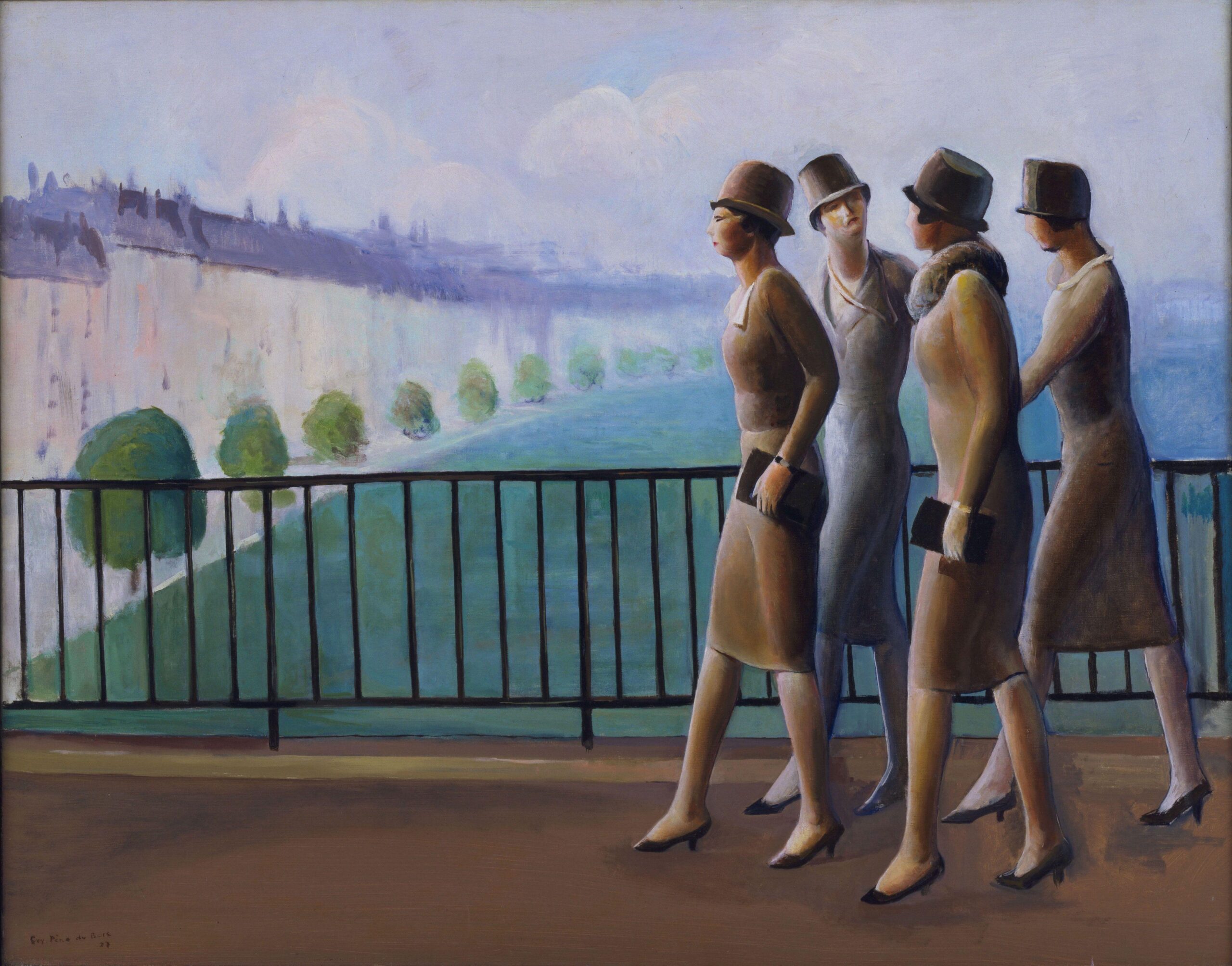 Who is Christopher Partridge?
Who is Christopher Partridge?
Professor Christopher Partridge is a leading British religious studies scholar and social scientist whose work has profoundly influenced our understanding of alternative spirituality, popular culture, and contemporary religion. As Professor of Religious Studies at Lancaster University, his groundbreaking research in Western esotericism, new religious movements, and the intersection of religion with popular music has shaped academic discourse since the 1990s. His influential books, including “The Re-Enchantment of the West” and “The Lyre of Orpheus,” have become essential reading for scholars studying modern spirituality and contemporary culture.
Partridge’s Ideas
Occulture and the Rejection of Disenchantment
Central to Partridge’s thesis is the concept of “occulture” – the reservoir of esoteric ideas, practices, and symbols that have permeated popular culture since the 1960s counterculture. From New Age spiritualities to psychedelic mysticism, from Wicca to chaos magick, occulture represents a grassroots rejection of the disenchanted worldview bequeathed by the Enlightenment – the notion that reality is wholly explicable through rational, scientific means.
Partridge argues that this occultural turn is not a fringe phenomenon, but a mainstream current reflecting deep-seated longings for meaning, purpose, and transcendence in an age of secular materialism. As traditional religious frameworks decline, individuals are increasingly drawn to alternative systems of belief and practice that promise direct, unmediated access to the sacred.
The Metamodern Sacred
This resurgence of enchantment, however, takes a distinctly metamodern form. Unlike the traditional spiritualities of the premodern era, grounded in stable hierarchies and unquestioned dogmas, the new occulture is characterized by a playful, improvisational, DIY sensibility. It mixes and matches elements from diverse traditions, blurring the boundaries between the ancient and the futuristic, the sacred and the profane.
At the same time, unlike the deconstructive irreverence of postmodernism, metamodern spirituality is marked by a renewed sincerity, a yearning for authentic connection and meaningful experience. It seeks not to ironically subvert all truth claims, but to forge new mythologies, new “grand narratives” that can orient the self in an age of fragmentation and uncertainty.
In this sense, the metamodern sacred is both a reaction against and a creative synthesis of the opposing worldviews of modernity and postmodernity. It rejects the flattening reductionism of secular materialism, while also eschewing the relativistic nihilism of extreme postmodernism. Instead, it reaches for a “both/and” perspective that honors the rational and the intuitive, the scientific and the mystical, the universal and the particular.
Implications for Psychotherapy
This shift has profound implications for the theory and practice of psychotherapy. As Partridge notes, the rise of occulture coincides with a growing interest in alternative and holistic approaches to mental health – from mindfulness meditation to shamanic healing, from transpersonal psychology to psychedelic-assisted therapy.
These approaches challenge the dominant biomedical model of the psyche, which tends to view mental distress as a mere “disorder” to be corrected through pharmacological or behavioral means. Instead, they recognize the potential for growth, meaning, and transformation in the depths of the human soul – even and especially in its darkest and most troubled regions.
Here the work of Carl Jung, with his emphasis on the individuation process and the transcendent function, takes on renewed relevance. For Jung, the goal of therapy was not simply to eliminate symptoms, but to facilitate the integration of the conscious and unconscious minds, to help the individual align with the deeper patterns and purposes of the Self.
This integrative vision finds echoes in the metamodern sensibility, which seeks to hold the tension of opposites and forge new wholes from the fragments of the postmodern condition. Like the Jungian process of individuation, metamodern therapy aims not for a static cure, but for an ongoing dance of self-discovery – a “unitas multiplex” that embraces both the light and shadow of the soul.
Trauma and Transcendence
Partridge’s perspective also offers a fresh lens on the nature of trauma and its potential for spiritual transformation. In a disenchanted world, trauma is often seen as a purely negative event, a rupture in the fabric of the self that requires diligent therapeutic “processing” to be resolved.
But as depth psychologists like Donald Kalsched have argued, trauma can also be a doorway to the numinous, a “trauma divine” that shatters the ego’s illusions of control and opens the psyche to transpersonal dimensions of experience. In this view, the goal of therapy is not simply to restore the self to its pre-traumatic state, but to help the individual integrate the “sublime” energies released by the wound.
This alchemical vision resonates with the metamodern embrace of paradox and ambiguity. It recognizes that growth often requires a descent into the underworld, a confrontation with the dark night of the soul. By reframing trauma as a potential initiation into a deeper, more expansive sense of self, metamodern therapy offers a way to find meaning in suffering, to transmute the lead of pain into the gold of wisdom.
Significance to Depth Psychology:
While not a depth psychologist himself, Christopher Partridge’s work on occulture and the re-enchantment of the West has significant implications and resonances for depth psychology. His understanding of the resurgence of alternative spiritualities as a response to the disenchanted worldview of modernity aligns with the depth psychological emphasis on the numinous, the transpersonal, and the symbolic dimensions of the psyche.
Partridge’s notion of occulture as a reservoir of esoteric ideas and practices permeating popular culture parallels depth psychology’s interest in the collective unconscious and archetypal motifs. Just as depth psychologists explore how mythic patterns and symbols shape individual psyches, Partridge traces how occultural themes manifest in contemporary art, literature, music and film.
Moreover, Partridge’s analysis of the metamodern sacred—as a paradoxical synthesis of pre-modern enchantment and post-modern deconstruction—resonates with depth psychology’s dialectical approach to spiritual experience. Like the Jungian process of individuation, metamodern spirituality seeks to reconcile opposites, to find meaning in the tension between light and shadow, the universal and the particular.
Finally, Partridge’s perspective on trauma as a potential gateway to numinous experience and spiritual transformation aligns with depth psychological understandings of the wound as a source of healing and growth. His emphasis on integrating the “sublime” or transpersonal energies released by trauma parallels depth psychology’s approach to working with the symbolic and archetypal dimensions of wounding.
In sum, while approaching the subject from a religious studies lens, Christopher Partridge’s scholarship illuminates key themes and dynamics that are central to depth psychology—the tending of the soul, the quest for meaning, the transmutation of suffering, and the re-enchantment of self and world. His work offers a valuable transdisciplinary bridge, situating depth psychological ideas within the broader cultural currents of our metamodern moment.
Major Books and Publications:
- The Re-Enchantment of the West: Alternative Spiritualities, Sacralization, Popular Culture, and Occulture (2 volumes, 2004-2005)
- Explores the resurgence of alternative spiritualities, esoteric ideas, and occult practices in contemporary Western culture. Argues this represents a rejection of the disenchanted, materialist worldview and a search for meaning and transcendence.
- The Lure of the Dark Side: Satan and Western Demonology in Popular Culture (2008, co-editor)
- Examines the figure of Satan and demonic themes in modern popular culture, tracing their historical development and contemporary manifestations across literature, music, film, and occulture.
- Holy Terror: Understanding Religion and Violence in Popular Culture (2010, co-editor)
- Analyzes depictions of religious violence in popular media, exploring how these narratives shape public perceptions and intersect with real-world religio-political conflicts.
- The Occult World (2014, editor)
- A comprehensive overview of the history and diversity of occult traditions worldwide, ranging from indigenous shamanism to modern chaos magick. Emphasizes occulture as a cross-cultural phenomenon.
- High Culture: Drugs, Mysticism, and the Pursuit of Transcendence in the Modern World (2018)
- Investigates the role of psychedelic drugs in the emergence of alternative spiritualities and countercultural movements since the 1960s. Argues for the continued relevance of “high culture” in the metamodern age.
Timeline:
1961 – Born in England
1980s – Studies theology and religious studies at Lancaster University
1997 – Completes PhD on the theology of revelation in Raëlian teachings, supervised by Ninian Smart
1997 – Joins academic staff of University of Chester as Lecturer in Religious Studies
2001 – Publishes inaugural book, UFO Religions, spurring scholarly interest in emergent spiritual movements
2003 – Appointed Senior Lecturer in Religious Studies at University of Chester
2004 – Publishes first volume of The Re-Enchantment of the West, his landmark work in religious studies
2006 – Appointed Reader in Religious Studies at University of Chester
2006 – Founds the Religious Studies department at University of Chester
2007 – Appointed Professor of Religious Studies at Lancaster University
2008 – Co-edits The Lure of the Dark Side, exploring demonic themes in popular culture
2010 – Co-edits Holy Terror, addressing depictions of religious violence in media
2013 – Serves as President of the International Society for the Study of Religion, Nature and Culture
2014 – Edits The Occult World, a comprehensive survey of global occult traditions
2018 – Publishes High Culture, examining the spiritual dimensions of psychedelic experience
2020 – Awarded Lifetime Achievement Award by the International Society for the Study of New Religions
2023 – Awarded Order of the British Empire for Services to Higher Education
Metamodernism and Post Secularism
Navigating the Future of Meta Modern Therapy
Key Points:
- Metamodernism represents an attempt to move beyond postmodernism by integrating modernist and postmodernist ideas.
- Metamodern spirituality is characterized by eclecticism, irony, and a sincere yearning for transcendence and enchantment.
- Carl Jung’s concept of the transcendent function is a key theoretical framework for understanding metamodern spirituality.
- Depth psychology offers tools for shadow integration and trauma healing that are vital for metamodern spiritual growth.
- The goal of metamodern spirituality is to facilitate the emergence of a more integrated, compassionate and awakened human presence.
- Thinkers like Jeffrey Kripal, Gordon Lynch, and Hanzi Freinacht are pioneers of the metamodern spiritual paradigm.
Bibliography:
- Freinacht, Hanzi. The Listening Society: A Metamodern Guide to Politics, Book One. Metamoderna, 2017.
- Freinacht, Hanzi. Nordic Ideology: A Metamodern Guide to Politics, Book Two. Metamoderna, 2019.
- Heelas, Paul. Spiritualities of Life: New Age Romanticism and Consumptive Capitalism. Wiley-Blackwell, 2008.
- Herman, Judith. Trauma and Recovery: The Aftermath of Violence–From Domestic Abuse to Political Terror. Basic Books, 2015.
- Hervieu-Léger, Danièle. Religion as a Chain of Memory. Rutgers University Press, 2000.
- Jung, C.G. The Archetypes and the Collective Unconscious. Princeton University Press, 1980.
- Kripal, Jeffrey J. The Flip: Epiphanies of Mind and the Future of Knowledge. Bellevue Literary Press, 2019.
- Levine, Peter A. Waking the Tiger: Healing Trauma. North Atlantic Books, 1997.
- Lynch, Gordon. The Sacred in the Modern World: A Cultural Sociological Approach. Oxford University Press, 2012.
- Partridge, Christopher. The Re-Enchantment of the West: Alternative Spiritualities, Sacralization, Popular Culture and Occulture Vol I and II. T&T Clark, 2004/2005.
- Turner, Luke. “Metamodernist // Manifesto.” https://www.metamodernism.org/. 2011.
- van der Kolk, Bessel. The Body Keeps the Score: Brain, Mind, and Body in the Healing of Trauma. Penguin Books, 2015.
- Vermeulen, Timotheus & van den Akker, Robin. “Notes on metamodernism.” Journal of Aesthetics and Culture, 2.1, 2010.

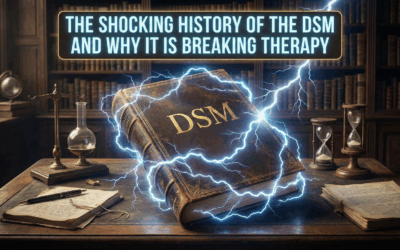
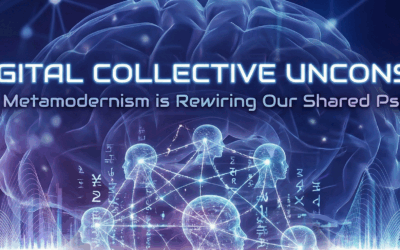
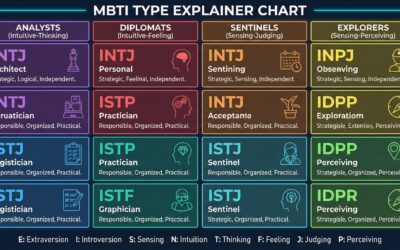
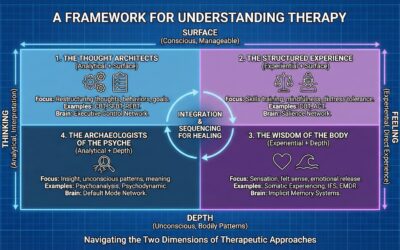
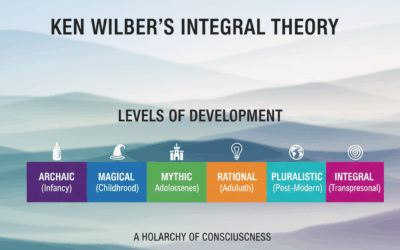
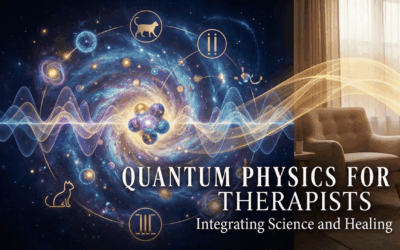
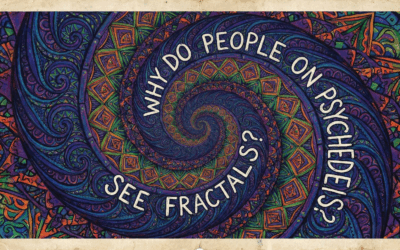
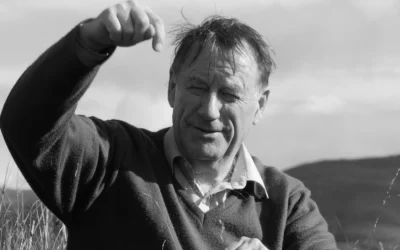
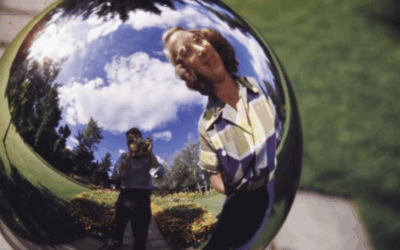
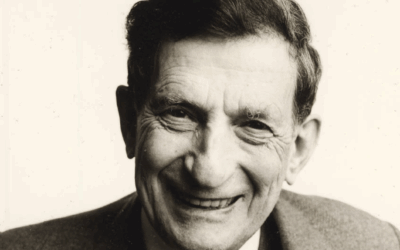
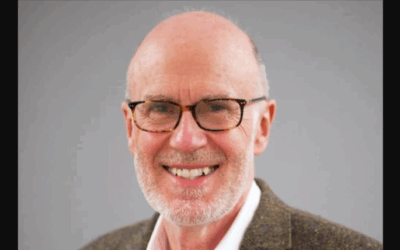
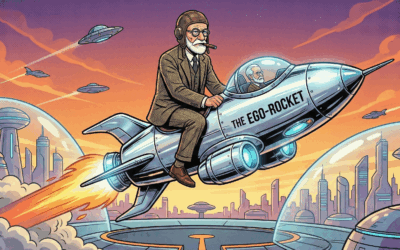
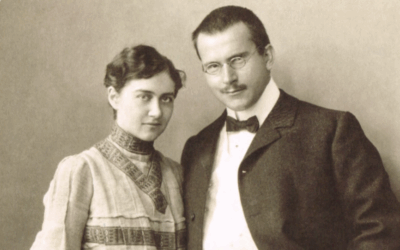
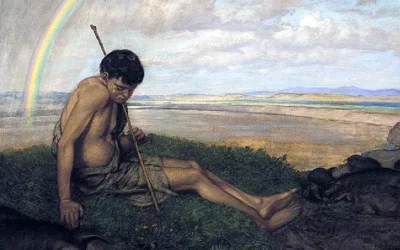

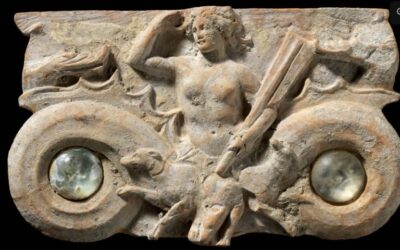
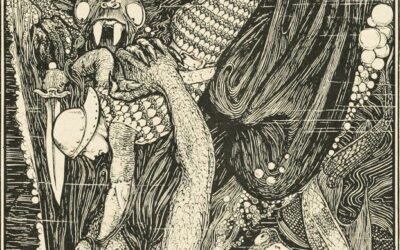
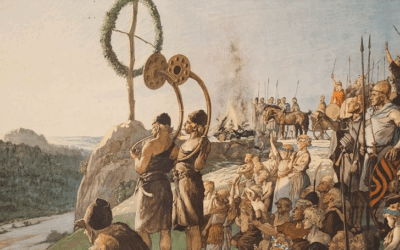
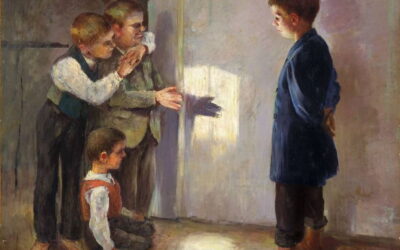

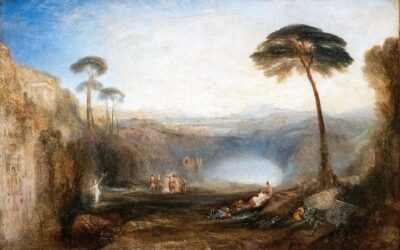
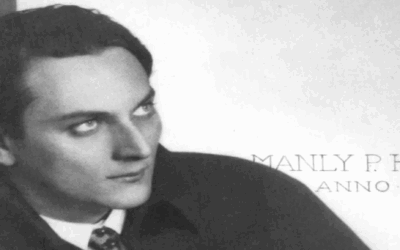
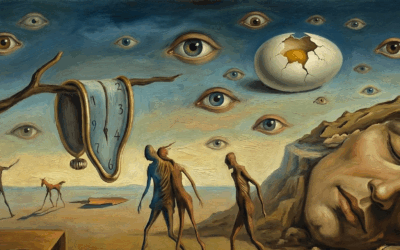

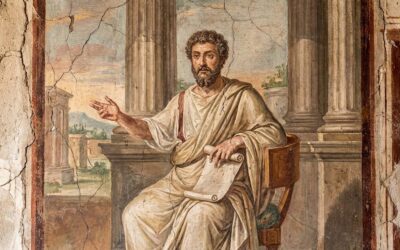
0 Comments